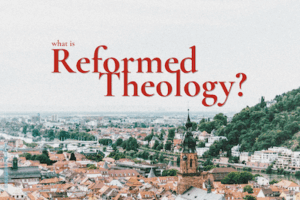Some years ago on one of his broadcasts, Bill Maher defined faith as “the purposeful suspension of critical thinking.”1 Similarly, Richard Dawkins, Neil deGrasse Tyson and others have defined faith as “believing something in the absence of evidence.”2 But are these definitions . . . Continue reading →
Audiogram: The Remonstrants And Common Grace
The Reformed and the Remonstrants share terminology for common grace but hold to different meanings. Continue reading →





